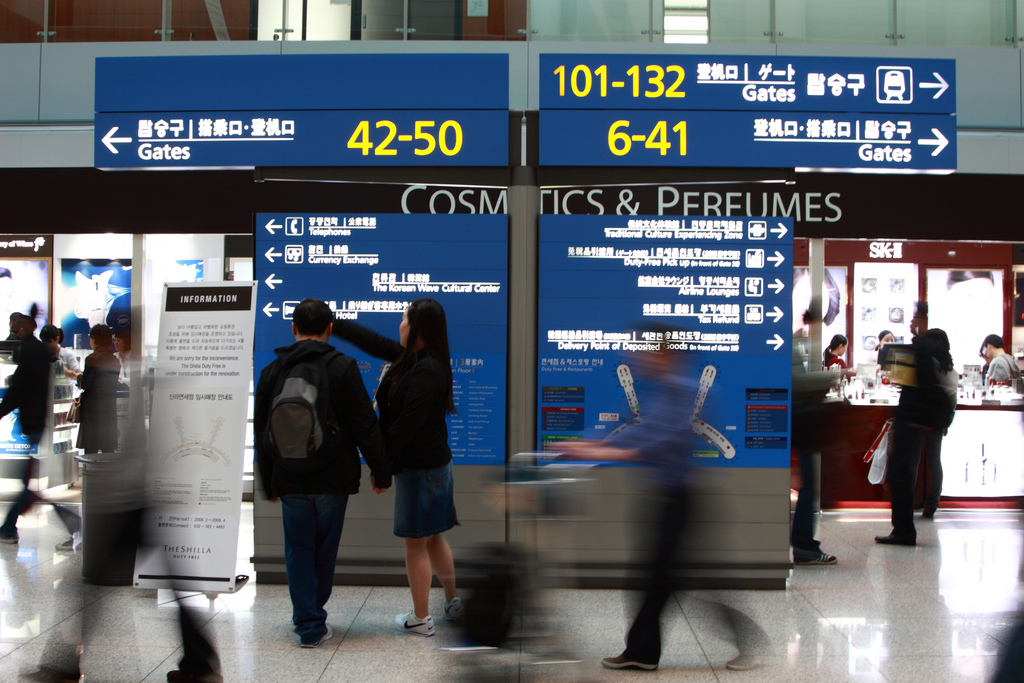The Peninsula
The Future of Global Korea

By Sarah K. Yun
Since his inauguration in 2008, President Lee Myung-bak has promoted a “Global Korea” policy for Korea to be a more active and responsible member of the international community. However, with the upcoming presidential election and potential pendulum swing in South Korea’s leadership, what is the future of Korea’s growing global leadership role?
With the U.S.-ROK alliance as the bedrock of its growing global presence and the “Global Korea” policy, Korea has pushed for improved and active bilateral relations across the world. Korea has not only solidified relations with its neighbors such as Japan and China, but also strengthened ties with Russia, countries of Southeast Asia, Latin America and Africa. President Lee Myung-bak was the first Korean head of state to visit Africa, while existing ties with Europe strengthened with the Korea-EU FTA. Korea has also boosted cooperation with ASEAN.
Korea has worked to improve efforts to fight poverty and contribute as a responsible member of the international community through official development aid (ODA) and peacekeeping missions in Afghanistan and Somalia, and disaster relief to Haitai and others. As the only country in the world that transformed itself from an aid recipient to aid donor within five decades, Korea spent $862 million in ODA in 2009, and has planned to double its ODA budget by 2012 and triple it by 2015.
In 2010, Korea successfully hosted the G-20 Summit in Seoul, elevating its status as an economic leader and global summit convener. It was the first non G-7 country to host the summit. In 2011, Korea hosted the fourth High Level Forum on Aid Effectiveness, participating and leading in issues related to global development and poverty reduction. Korea has been working closely with the United Nations Development Program (UNDP) and other multilateral organizations for knowledge sharing and technical assistance. In March 2012, Korea hosted the second Nuclear Security Summit in Seoul. From May to August 2012, the World Expo takes place in the coastal city of Yeosu. Korea will also host the 2018 PyeongChang Winter Olympics.
Moreover, Korea’s culture and pop culture, including Hallyu (Korean Wave), has swept across the world throughout Asia, Latin America, North America, and Europe. Korean companies have also contributed to Korea’s global presence. Korea’s soft power has shown to be active and influential.
“Global Korea” has clearly not been a misnomer in the recent years. At the same time, democratic politics in Korea is extremely dynamic and dramatic, which often makes policy predictions difficult especially in an election year. In this year of change, will “Global Korea” hold? Although a large-sized country with a developed economy is unlikely to need such a policy, a small middle-power country like Korea has a stronger need for such a policy approach to help it find a competitive advantage on the world stage. In other words, a policy such as “Global Korea” is inherently in Korea’s interest to remain competitive. President Lee’s green growth initiative is also similar in nature in that Korea needs to preserve its national capital for sustainable long-term growth. Embedded in “Global Korea” is also the country’s position to stay effective as a world leader. On the other hand, Korea is strategically tying its new global position with a shared growth vision, which takes the edge off the potential negative impacts of national branding.
The one potential hurdle may be that the core issue in the current election campaign is the issue of social welfare. Consequently, both parties may become more focused on domestic policies as opposed Korea’s place in the international community. However, an agenda focused on Korea’s role on the global stage and shared growth should be a non-partisan issue, as the need for increased global and regional governance is stronger than ever before. Therefore, while the terminology and some of the function may change, the idea of Korea having a greater global role should be sustainable under future administrations and the assumption that Korea will continue to strive to maintain its middle-power leadership in the world.
Continuing Korea’s leadership in the world may continue to take shape in many forms, including international summit convener, economic role model, soft power leader, and others. On the other hand, there are three agenda items for Korea to enhance its leadership in the world. The first is to become an industry hub, just as Hong Kong and Singapore are financial hubs and Bangkok is an international development center in Asia. The second is to boost international volunteer programs such as KOICA to engage young leaders in Korea’s global participation. The third is to improve the social safety net that has been impacted by the financial crisis and strengthen the civil society that is beginning to solidify as a significant player in Korean society. At the same time, Korea has to delicately balance domestic and international issues in order to continue as a global leader.
Korea has shown remarkable resilience from historical violence and divisions. It has risen to be one of world’s most stable and dynamic democracies and markets, becoming a role model for many developing countries. Korea is a country that bridges the divide between developed and developing countries. With this responsibility, it would be a misstep to forgo Korea’s emerging leadership role under any administration.
Sarah K. Yun is the Director of Public Affairs and Regional Issues for the Korea Economic Institute. The views expressed here are her own.
Photo from underclasscameraman’s photo stream on flickr creative commons.
